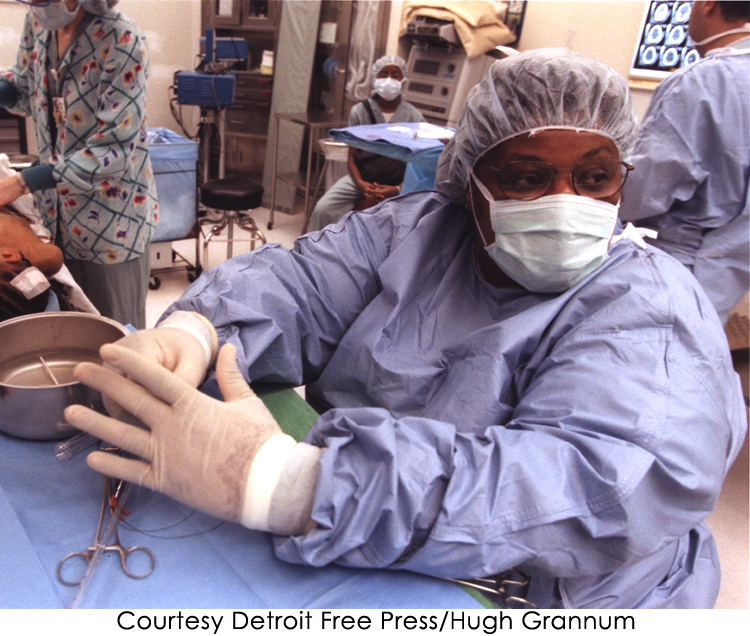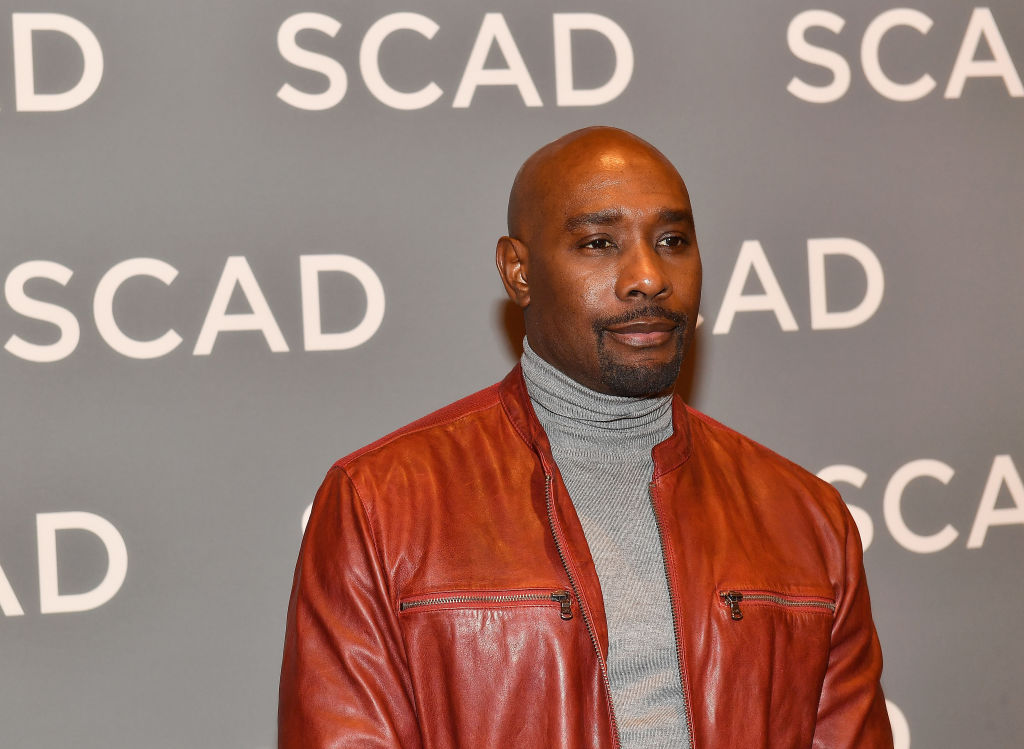Dr. Alexa Irene Canady is a visionary.
It is because of her vision that she has forever changed the face of medicine.
Canady was born in Lansing, Michigan to Elizabeth Hortense (Golden) Canady and Dr. Clinton Canady, Jr. Her mother was an educator and former national president of Delta Sigma Theta Sorority, Inc. She became Chief of Neurosurgery at the Children's Hospital of Michigan in 1987 and held the position until her retirement in 2001. During her time as Chief, she specialized in congenital spinal abnormalities, hydrocephalus, trauma and brain tumors. Her work and accomplishments have opened the door for many surgeons to be of all races and genders.
She also spent years being active in civic affairs within the city of Lansing and her father a dentist. Her parents attended Fisk University where they met and later married on her mother's 18th birthday right before her father's deployment during World War II. Her father is also a graduate of Dentistry of Meharry Medical School and her mother's a graduate of Fiasco University. Canady's parents taught her about the importance of education and hard work as a child, which would help ultimately her graduate from high school with honors.
Canady and her younger brother were raised outside of Lansing and were the only two African-American students in their school. They faced many obstacles throughout their school years. However, despite these obstacles, Canady stood out among her peers academically, both in the classroom and by earning high scores on her tests in school. Before going on to the University of Michigan, Alexa Canady was nominated as a National Achievement Scholar in 1967.
While Alexa Canady was attending the University of Michigan, a health careers summer program for minority students sparked her interest in medicine. After graduating from college in 1971 with a major in zoology, Canady continued on to the university's medical school.
"I was worried that because I was a black woman, any practice opportunities would be limited," said Canady. "By being patient-centered, the practice growth was exponential."
Canady initially wanted to be an internist, but her plans changed when she became intrigued by neurosurgery. It was a career path that some advisers discouraged her from pursuing, and she encountered difficulties in obtaining an internship. But Canady refused to give up, and was eventually accepted as a surgical intern at Yale-New Haven Hospital. She went there after graduating, cum laude, from medical school in 1975.

When her internship ended in 1976, Canady moved to the University of Minnesota, becoming, as a resident of the university's department of neurosurgery, the first female African-American neurosurgery resident in the United States. Upon completing her residency in 1981, she became the country's first female African-American neurosurgeon.
"Convincing the neurosurgery chairman that I was not a risk to drop out or be fired, a disaster in a program where there are only one or two residents per year was one of my hardest obstacles. I was the first African American woman [in the department]. Along with that, my other greatest obstacle was convincing myself that someone would give me a chance to work as a neurosurgeon."
She then became a surgical intern at the Yale-New Haven Hospital from 1975-1976, rotating under...
... Dr. William F. Collins. Although being an exceptional student, she still faced prejudice and discriminative comments as she was both the first black and female intern in the program. She then became the first African American woman neurosurgery resident in the US at the University of Minnesota . Despite what people said about her, Canady viewed her accomplishments as something both women and African Americans could look up to.
In addition to her other responsibilities, Canady conducted research and taught as a professor of neurosurgery at Wayne State University. She maintained a busy schedule until her retirement from the Children's Hospital in 2001. After retiring, Canady moved to Florida. When she learned that there were no pediatric neurosurgeons in her immediate area, she began to practice part-time at Pensacola's Sacred Heart Hospital.








